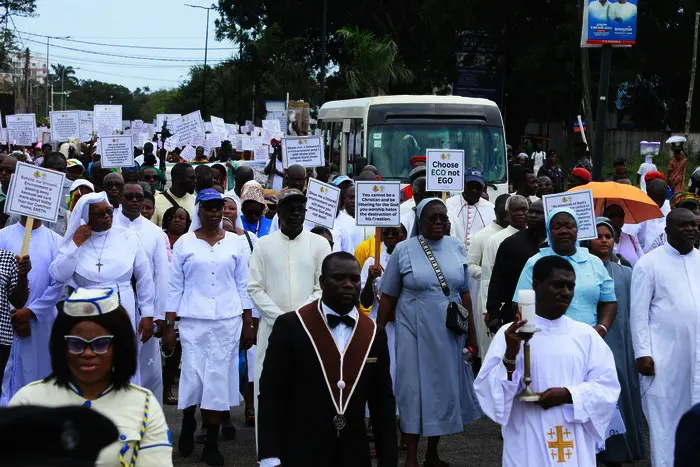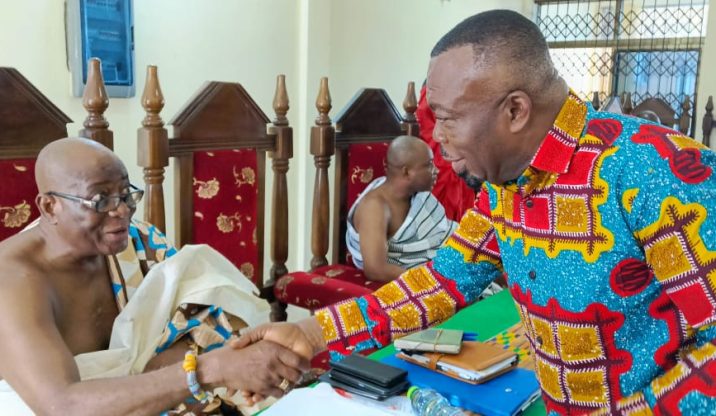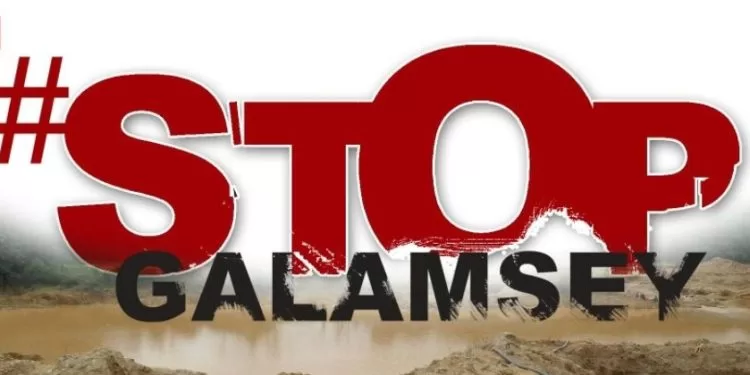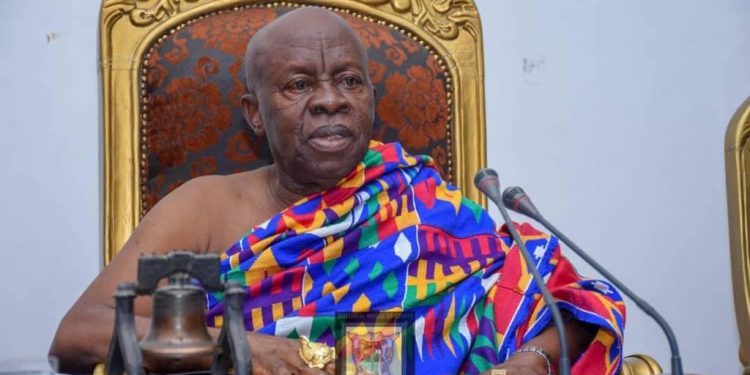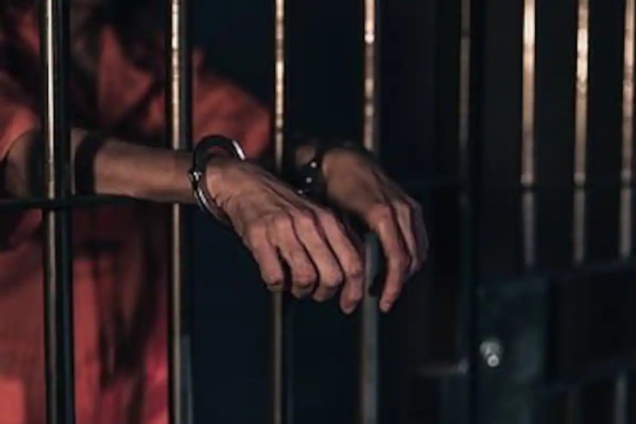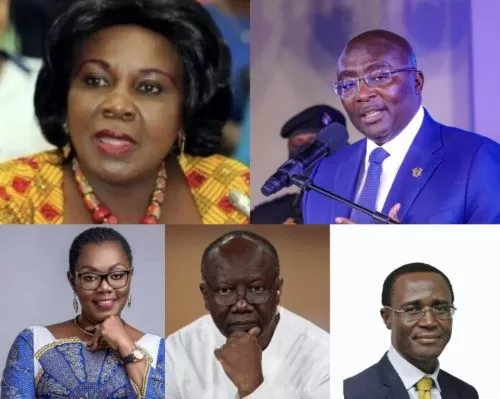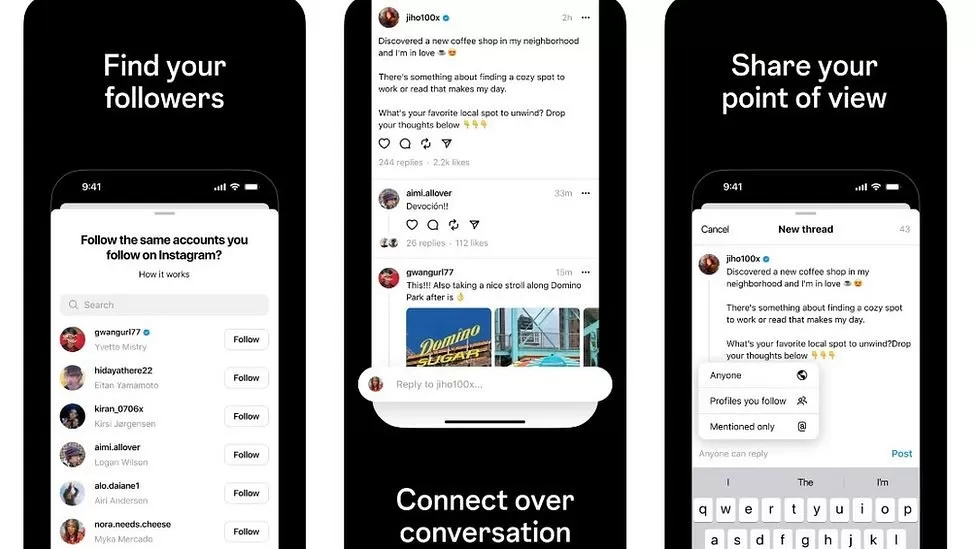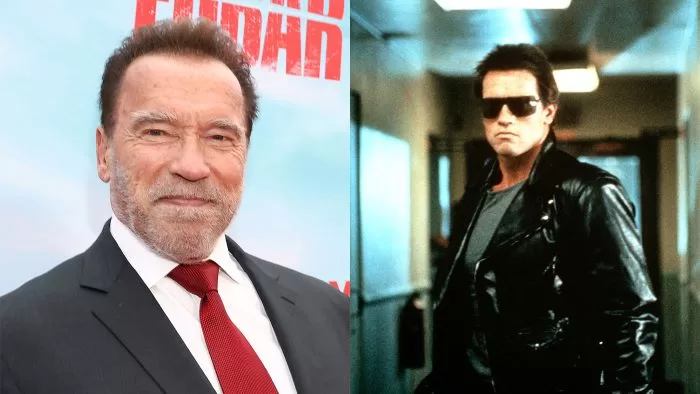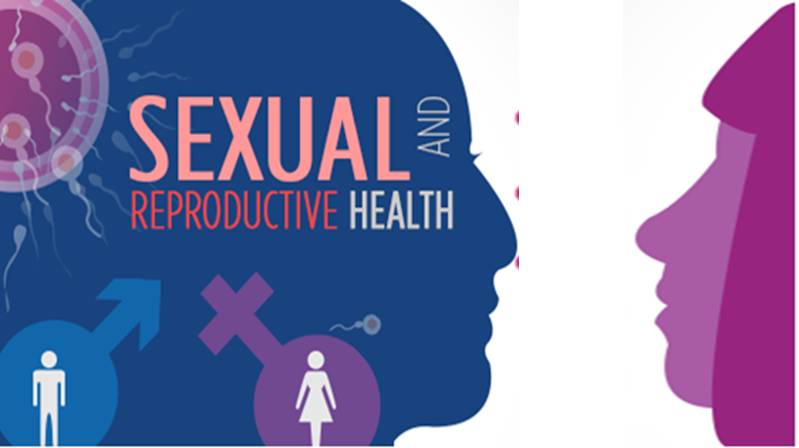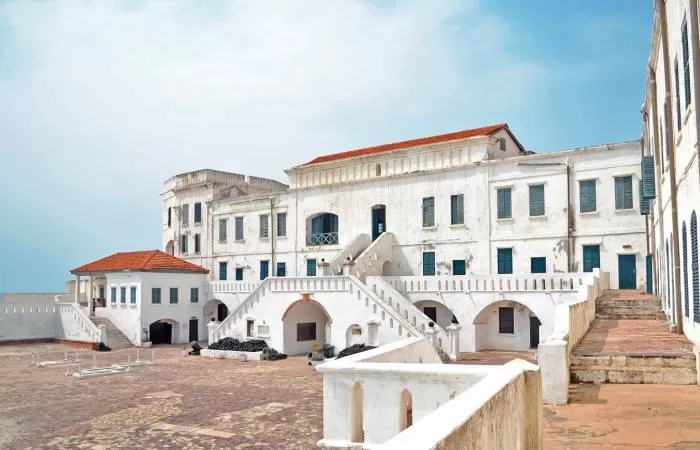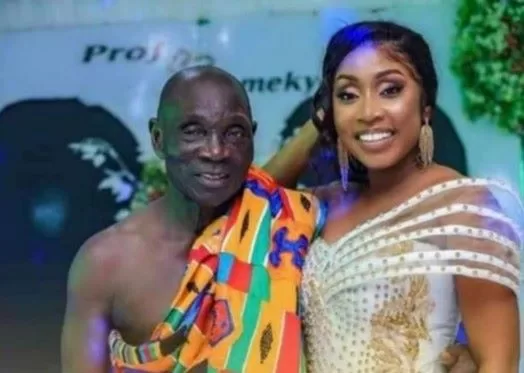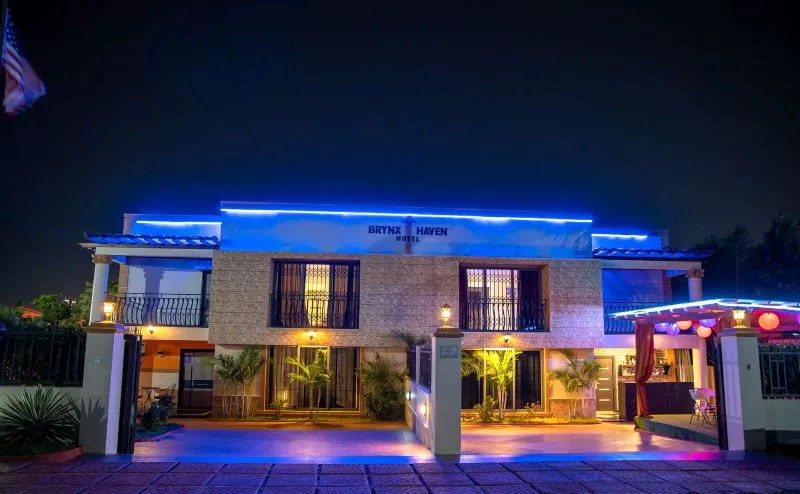Some members of the Invisible Forces, a pro-NPP vigilante group[/caption]
Today on Ghana Rising, Let’s swing out of the strict world of business and onto the muddy inroads of political vigilantism.
Political vigilantism through my lens is a by-product of unwholesome politics, and an indicator of the untarred state of Ghanaian politics.
This discussion will limit itself to the two main political parties: The National Democratic Congress (NDC) and the New Patriotic Party (NPP) who are identified enablers of vigilante groups.
Ghana is presently within that cyclical phase where regional and national executives are elected leading up to the presidential race. There’s a common notion that the party in power commands the loyalty of state security, this implies that the opposition peddles the excuse of unreliable state forces as a reason to establish their own INFORMAL security forces. These informal forces are financed and commanded by established political actors. Their functions take up various qualities from body guards to private security and eventually NATIONAL THREAT based on the political evolution of their party. While they may seem to answer to political figureheads, they quickly become invincible and make demands on government. Their actions become so entitled that they are a dent on the image of their parties as has been observed between the NPP and the Delta/Invisible forces in 2017 and 2018.
Last week the NDC on the back of social disruptions created by the Kandahar Boys in Tamale, went against better judgement to outdoor a new vigilante group with regional branches. The groups seem to have taken up animal names (The Hawks, Dragons and Lions) perhaps in reference to their unhinged mission.
Political vigilantism is a prelude to political violence, the formation of these groups is a direct announcement of a party’s intention to be violent. Having thugs formulate and execute security protocols with no legal ramifications to deter them is state failure. As experienced over time, impudent disruptions in security occur when these thugs feel slighted by their political superiors and become directly brutal in showing their displeasure. It is unacceptable that its presence in Ghanaian politics has become common.
What are the Other Vigilante Groups in Ghana?
Myjoyonline in August 2017 named them as Veranda Boys, Supreme, Mahama Boys, Basuka Boys, Badariba, Bindiriba, Azorka Boys, Invisible Forces, Bamba Boys, Gbewaa Youth, Kandahar Boys, Aluta Boys, Nima Boys, Salifu Eleven, Zongo Caucus, Pentagon, 66 bench, Al Quaeda, Al jazeera, NATO forces, Nana Addo fan club, Bugri Naabu fan club , The Delta Force, Bolga bulldogs, Tohazie, Bukurisung, Rasta Boys and SeSe Boys.
[caption id="attachment_47118" align="aligncenter" width="566"] The vigilante group stormed the A/R Coordinating Council to force the new appointee out[/caption]
What are the Typical Features of Vigilante Groups?
They are known to appear physically imposing and are named to create intimidation.
Members are largely party fanatics who have displayed a willingness to carry out the wishes of their party without question.
Members are often illiterate / semi-literate and unemployed youth.
They are committed to the electoral dominance of their political parties.
They will fight to the end to advance the interests of their party and employ drastic means to eliminate human and institutional threats to their perceived normal.
What is the Social and Economic Cost of Vigilantism?
-Where government supports vigilantism with state funds, the argument of misappropriation arises,
-There’s also the loss of potential contributors to the labour force who prefer the easy option of joining lawless groups with steady finance by politicians.
-And it becomes highly probable that members of these groups will remain irresponsible members of society with no positive contributions to economic growth.
-In other African examples, vigilante groups created during periods of democratic transition have often taken up arms against political opponents when the political environment deteriorates.
-These groups recruit and enlarge to become war criminals or militant groups that loot and kill and enable illegal businesses across borders.
-In South Africa, the government has often lost control of local neighbourhoods to vigilante groups, creating a situation of social and moral decay.
-An ease of political violence because groups are armed to fight for their party interests, they are predisposed to violent reactions when there are indifferences at the ballot.
-Unreliable Governance. This is observed when appointments must be preapproved by members of vigilante groups who have no working knowledge.
-A loss of social confidence in the security structure of a nation as citizens begin to witness the impunity of vigilantes and the inability of the law to regulate their actions. A clear example being the industrial action threat by medical staff of the Tamale Teaching Hospital after the chief executive officer was thrown out of office by disruptive youth.
-The tendency of government to protect vigilante groups implies an increase in insecurity and crime.
Who is guilty?
Both NDC and NPP and all Ghanaians who support the formation of these groups.
State institutions who have failed to proactively disband vigilante groups.
The vigilante group stormed the A/R Coordinating Council to force the new appointee out[/caption]
What are the Typical Features of Vigilante Groups?
They are known to appear physically imposing and are named to create intimidation.
Members are largely party fanatics who have displayed a willingness to carry out the wishes of their party without question.
Members are often illiterate / semi-literate and unemployed youth.
They are committed to the electoral dominance of their political parties.
They will fight to the end to advance the interests of their party and employ drastic means to eliminate human and institutional threats to their perceived normal.
What is the Social and Economic Cost of Vigilantism?
-Where government supports vigilantism with state funds, the argument of misappropriation arises,
-There’s also the loss of potential contributors to the labour force who prefer the easy option of joining lawless groups with steady finance by politicians.
-And it becomes highly probable that members of these groups will remain irresponsible members of society with no positive contributions to economic growth.
-In other African examples, vigilante groups created during periods of democratic transition have often taken up arms against political opponents when the political environment deteriorates.
-These groups recruit and enlarge to become war criminals or militant groups that loot and kill and enable illegal businesses across borders.
-In South Africa, the government has often lost control of local neighbourhoods to vigilante groups, creating a situation of social and moral decay.
-An ease of political violence because groups are armed to fight for their party interests, they are predisposed to violent reactions when there are indifferences at the ballot.
-Unreliable Governance. This is observed when appointments must be preapproved by members of vigilante groups who have no working knowledge.
-A loss of social confidence in the security structure of a nation as citizens begin to witness the impunity of vigilantes and the inability of the law to regulate their actions. A clear example being the industrial action threat by medical staff of the Tamale Teaching Hospital after the chief executive officer was thrown out of office by disruptive youth.
-The tendency of government to protect vigilante groups implies an increase in insecurity and crime.
Who is guilty?
Both NDC and NPP and all Ghanaians who support the formation of these groups.
State institutions who have failed to proactively disband vigilante groups.
 How can Ghana Rise out of Political Vigilantism?
The substantive solution is a controlled approach to disbanding vigilante groups and engaging them mentally and physically in profitable livelihoods. This should be a direct action of national security and state security forces irrespective of party cards. Security agents must owe loyalty and allegiance to Ghana first.
The lenient reaction of law enforcement agencies has to change.
If Ghanaian politicians find a need to create vigilante groups by all means, they must find the personal resources with which to placate them without dipping into state funds or endangering other Ghanaians.
Both parties must commit to the solution. It is not progressive for one party to condemn the actions of the other while simultaneously forming groups with similar function.
These groups as we know often react to the actions of their opponents as a form of payback whenever they win power. For example when the National Democratic Congress Party won in 2008 as Azorka Boys and other invisible forces of the party took over some public offices, including public toilets looted and beat up some individuals perceived to belong to the New Patriotic Party. Most members of the NPP use this as justification for the actions of the Delta forces and other pro NPP vigilante groups.
It is important to have clear and consistent communication between political leaders, appointees and the grass roots. When leaders of Vigilante Groups speak, they make it clear they feel offended by the breakdown in communication between party heads, government appointees and members of vigilante groups. Their violence is usually in reaction to the feeling of being discarded and disrespected after their party wins power.
The breakdown in communication between government appointees and these man-made security disruptions becomes a silent tug of war played out in public which often draws the participation of unsuspecting, innocent citizens
Political appointees need to understand that the monsters they create must be engaged and fed consistently. Overgrown pets become monsters and hungry monsters run riot and become national burdens.
They need to find a way to occupy these forces without putting everyone at risk. Unemployed youth must be channelled towards productive engagement instead of being taken advantage of by party big wigs.
State institutions must function without political bias, and directly arrest and prosecute all members of political vigilante groups. Vigilante groups are domestic terrorists and must be treated as such.
It is an aggravation of the problem when state institutions condemn one party’s lawless actions while deliberately ignoring the excesses of the party in power. Condemnation must be equal as both parties are guilty. This is a direct reference to the NCCE’S statement against the formation of NDC vigilante groups. The progressive thing to do would have been active and sustained condemnation of ALL existing vigilante groups especially those directly engaged in crime.
We need to move away from shielding them from the justice process as has been observed over the years, a party in power that shields an unhinged vigilante group is only creating further security threats for the nation and giving its opponents reason to do same.
The NDC and NPP must sit together to carve a way forward and sign a bond that restricts the formation of these groups.
The argument that seeks to educate these groups and convert them into formal security agencies is unprogressive because their mandate has been conceived and built on the foundation of strict allegiance to the party they represent and its members. Converting them into state sponsored security agencies only formalizes a bias and lawless mission. We must conclude that vigilantism especially political vigilantism born during periods of democratic transition is domestic terrorism.
By Nuong Faalong
To have a conversation about this subject, do email me at nuongg@outlook.com]]>
How can Ghana Rise out of Political Vigilantism?
The substantive solution is a controlled approach to disbanding vigilante groups and engaging them mentally and physically in profitable livelihoods. This should be a direct action of national security and state security forces irrespective of party cards. Security agents must owe loyalty and allegiance to Ghana first.
The lenient reaction of law enforcement agencies has to change.
If Ghanaian politicians find a need to create vigilante groups by all means, they must find the personal resources with which to placate them without dipping into state funds or endangering other Ghanaians.
Both parties must commit to the solution. It is not progressive for one party to condemn the actions of the other while simultaneously forming groups with similar function.
These groups as we know often react to the actions of their opponents as a form of payback whenever they win power. For example when the National Democratic Congress Party won in 2008 as Azorka Boys and other invisible forces of the party took over some public offices, including public toilets looted and beat up some individuals perceived to belong to the New Patriotic Party. Most members of the NPP use this as justification for the actions of the Delta forces and other pro NPP vigilante groups.
It is important to have clear and consistent communication between political leaders, appointees and the grass roots. When leaders of Vigilante Groups speak, they make it clear they feel offended by the breakdown in communication between party heads, government appointees and members of vigilante groups. Their violence is usually in reaction to the feeling of being discarded and disrespected after their party wins power.
The breakdown in communication between government appointees and these man-made security disruptions becomes a silent tug of war played out in public which often draws the participation of unsuspecting, innocent citizens
Political appointees need to understand that the monsters they create must be engaged and fed consistently. Overgrown pets become monsters and hungry monsters run riot and become national burdens.
They need to find a way to occupy these forces without putting everyone at risk. Unemployed youth must be channelled towards productive engagement instead of being taken advantage of by party big wigs.
State institutions must function without political bias, and directly arrest and prosecute all members of political vigilante groups. Vigilante groups are domestic terrorists and must be treated as such.
It is an aggravation of the problem when state institutions condemn one party’s lawless actions while deliberately ignoring the excesses of the party in power. Condemnation must be equal as both parties are guilty. This is a direct reference to the NCCE’S statement against the formation of NDC vigilante groups. The progressive thing to do would have been active and sustained condemnation of ALL existing vigilante groups especially those directly engaged in crime.
We need to move away from shielding them from the justice process as has been observed over the years, a party in power that shields an unhinged vigilante group is only creating further security threats for the nation and giving its opponents reason to do same.
The NDC and NPP must sit together to carve a way forward and sign a bond that restricts the formation of these groups.
The argument that seeks to educate these groups and convert them into formal security agencies is unprogressive because their mandate has been conceived and built on the foundation of strict allegiance to the party they represent and its members. Converting them into state sponsored security agencies only formalizes a bias and lawless mission. We must conclude that vigilantism especially political vigilantism born during periods of democratic transition is domestic terrorism.
By Nuong Faalong
To have a conversation about this subject, do email me at nuongg@outlook.com]]>



